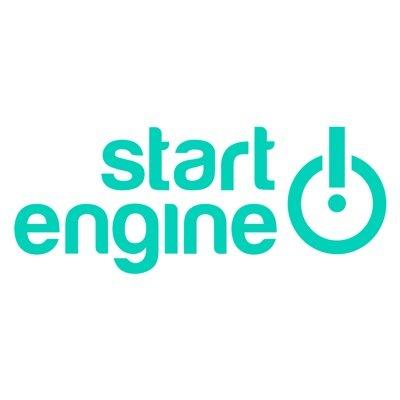Invest in startups in exchange for equity
Invest in startups in exchange for equity or debt
Investments
$100
The standard minimum investment on Wefunder for most Community Rounds is $100. However, the exact minimum can vary based on the specific offering and the investor's status as an accredited investor.
Investments
$250
The minimum investment on StartEngine typically starts from $250, with the average being around $500.
High Risk
4/5
Investing in startups on Wefunder is highly risky, and there's a real possibility of losing your entire investment.
High Risk
4/5
Investing on StartEngine carries risks including market volatility, liquidity challenges, regulatory changes, the high likelihood of company failure, dilution of shares, limited company information, and the absence of guaranteed returns.
Minimum Liquidity
1/5
Wefunder's investments are not highly liquid, as there is no public market for selling your stake. After one year, you can sell to any interested buyer.
Minimum Liquidity
1/5
Liquidity on StartEngine Secondary varies due to its nature as a peer-to-peer trading platform with specific eligibility criteria and trading hours. Initially limited to companies that have raised on StartEngine, the platform's liquidity is influenced by the availability of securities and the matching of buy and sell orders within designated market hours.
Receive new reviews from Fintorial
Not Predictable Return
N/P
On Wefunder, investors can earn returns through different investment mechanisms: Debt, Convertibles Stock (No Dividends), Stock, Dividends. Investment returns on Wefunder vary by investment type, with dividends more typical in later-stage, non-tech businesses.
Not Predictable Return
N/P
Potential returns on investments are uncertain and vary. StartEngine's role ends after a company's capital raising concludes, leaving it without control or insight into post-offering investment activities.
Long-term Investment
7 years
Investments on Wefunder are long-term, with an average return period of around seven years, particularly for convertible notes or SAFEs.
Long-term Investment
5+ years
Investments through StartEngine typically have a long-term horizon, often requiring several years to potentially yield returns due to the early-stage nature of the companies.
Who can invest
International
Individuals 18 and older can invest on Wefunder, regardless of whether they are accredited or non-accredited investors. Additionally, Wefunder allows investments through entities.
Who can invest
International
StartEngine allows anyone over 18 to invest. However, due to regulatory concerns, StartEngine does not currently accept investments from residents of the UK or Canada.
Moderate Volatility
3/5
The assets on Wefunder, primarily startups and small businesses, are highly volatile due to the uncertain success of these ventures and fluctuating market conditions.
Moderate Volatility
3/5
Assets on StartEngine, mainly shares in startups and early-stage companies, exhibit high volatility due to uncertain revenues, evolving business models, and market sensitivity.
Regulation and audits
SEC Regulated
Wefunder is regulated by the SEC and FINRA under Regulation Crowdfunding (Reg CF), requiring it to adhere to strict rules about investment limits, company fundraising, and disclosures.
Regulation and audits
SEC Regulated
StartEngine operates under strict regulatory oversight by the SEC and FINRA, ensuring adherence to investor protection and market integrity rules.
Insurance
Yes
StartEngine's memberships with FINRA and SIPC signify its commitment to investor protection, with SIPC offering insurance against the loss of cash and securities if a broker-dealer goes bankrupt. However, it doesn't cover market loss.
Payouts
No Recurring Payouts
Wefunder investments typically do not offer dividends, as they are often in early-stage startups focusing on growth.
Payouts
No Recurring Payouts
Dividends on StartEngine depend on the individual company's policy and investment terms, with startups often reinvesting profits to fuel growth rather than distributing dividends.
Withdrawals
On Wefunder, investors primarily see returns from liquidity events like acquisitions or IPOs, where investments may convert to cash or shares. After the first year, shares can be sold to any interested buyer, with Wefunder facilitating the transfer process. For debt investments or revenue shares, returns follow the agreed terms, like fixed repayments or revenue-based payouts.
Withdrawals
Investors can withdraw available funds from their StartEngine Investment Account after a 10-day waiting period from the initial transfer, subject to providing additional information for security if needed.
Extra Fees
Yes
Wefunder charges a one-time transaction fee of 2% for bank payments and 5.5% for credit card payments. For WeFunds, an administrative fee covers lifetime costs like filings and accounting, with no additional contributions required from investors.
Extra Fees
Yes
Investors may encounter a 3.5% processing fee on investments, depending on the company's choice. Wire transfers could have additional bank fees, while ACH and credit card investments don't have extra fees beyond the 3.5% if applicable. Trading on StartEngine Secondary is free for buying, but selling shares includes a 5% transaction fee.
Taxes
Tax Form
Wefunder supports tax reporting for investors by providing Schedule K-1 forms for those invested through LLCs or SPVs, detailing taxable gains or losses. For investments receiving payments, such as revenue shares, Form 1099 may be issued to report income.
Taxes
Annual Statement
Investors must procure the necessary tax documents directly from the entities in which they have invested, since StartEngine does not distribute tax forms.

